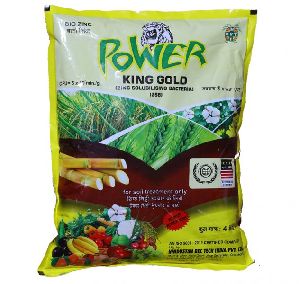
Zinc Solubilizing Bacteria Bio Fertilizer
CFU: 5 x 107/ g Dosage & Method of Application Soil Treatment Mix 4 kgs / acre with 50 kgs of soil / FYM / vermicompost / acre and after 2 or 3 days maintaining adequate moisture and broadcast. Seed Treatment Mix the inoculants uniformly with the seeds gently with the minimum amount of water taking care to avoid damage to seed coat. Dry the inoculated seeds under shade over clean paper or gunny bag and sow immediately. Treatment of the plant material (sett, seedling and rhizomes) Dissolve 1 kg in 20 -30 liters of water and dip the seedlings for 30 minutes before planting. Soil Drenching Mix 250 g / 200 liters of water and apply near the root zone per acre area of cropped area. Mode of Action Pseudomonas aeruginosa oxidizes and produces organic acid which helps to solublize the unsoluble zinc In to soluble form and makes it available to the plants. Recommended Crops Jowar, Bajra, Wheat, Maize, Paddy, Cotton, Sugarcane, Oilseeds (sunflower, groundnut, mustard, coconut, and soybean) Vegetables, Grass, Fruit trees and Ornamental plants. Key Aids Mobilization and fixation of Zn. Recovers alkaline oils into soil. Results in higher yields.
...more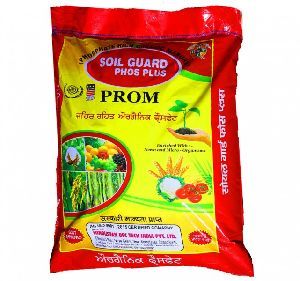
Phosphate Rich Organic Manure
10 - 18 Per kg
150 Bag (MOQ)
Phosphate rich organic manure is a type of fertilizer used as an alternative to diammonium phosphate and single super phosphate. Phosphorus is required by all plants but is limited in soil, creating a problem in agriculture In many areas phosphorus must be added to soil for the extensive plant growth that is desired for crop production. Phosphorus was first added as a fertilizer in the form of single super phosphate (SSP) in the mid-nineteenth century, following research at Rothamsted Experimental Station in England. SSP is non-nitrogen fertiliser containing Phosphate in the form of monocalcium phosphate and Gypsum which is best suited for Alkali soils to supplement Phosphate and reduce soil alkalinity. The world consumes around 140 million tons of high grade rock phosphate mineral today, 90% of which goes into the production of diammonium phosphate . Usage Gardening : Vegetable, Roof top, herbs, Flowering Plants (Floriculture), Natural Lawn and Garden care. Organic Landscaping and Agricultural Farms. Fruit trees (Horticulture). Tissue culture Plants. Sericulture All crops Benefits Enables efficient growth. Increases moisture retention. Promotes microbial activity. Controls pest & diseases. Dosage As per the requirement according to the crops
Country of Origin : India
Type : Phosphate Rich Organic Manure
Material : PROM
Application : Agriculture
Cultivation Type : Organic
Color : Brown
State : Punjab , Rajasthan , Gujarat , Himacha Pradesh , harayana
Purity : 100%
Packaging Type : Plastic Bag
Packaging Size : 50kg
Brand Name : HBT INDIA
...more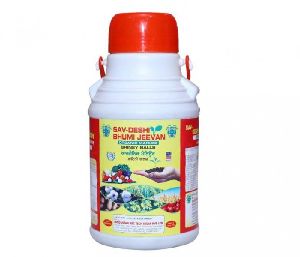
Shiny Ball Organic Manure Organic Fertilizer
Amino Humic Shiny Balls are used to improve soil structure. It is specially made round granules for soil application. It is combination of Amino Acid, Humic Acid, Fulvic Acid, Potash, etc. Research and study shows that this product can increase crop yield by 10-20% can be used in any crops. Key Aids Mainly used for soil application growth promoting root developing Recommended Crops Any Field Crops and/or Horticultural Crops Vegetables.
...more
rhizobium bio fertilizer
Nitrogen Fixing Bio-Fertilizer for Crops CFU : 5 x 107/ g Mode of Application Soil Treatment Mix 250 g of rhizobium in 200 liters of water and apply near the root zone per acre area. Seed Treatment Mix 6 – 10 g / kg of seeds in required volume of water and add a small lump of jaggery, mix well, shade dry (15- 20 mins) and ready for sowing. Treatment of the seedlings Dissolve 50 – 100 g in 20 -30 liters of water and dip the seedlings for 30 minutes before planting. Mode of Action Rhizobium colonizes the plant cells within root nodules, where they convert atmospheric nitrogen into ammonia and then provide organic nitrogenous compounds such as glutamine or ureides to the plant. The plant, in turn, provides the bacteria with organic compounds made by photosynthesis. Recommended Crops All crops such as Cereal crops like Paddy, Maize, millets, Sugarcane, oilseeds, cotton, vegetables, floricultural and plantation crops. Key Aids Nitrogen fixation Promotes plant growth. Better crop yields. Availability Both Powder and Liquid form
...more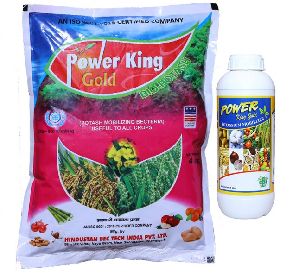
Potash Mobilizing Bacteria Bio Fertilizer
CFU: 5 x 107/ g Mode of Application Soil Treatment Mix 4 kgs / acre with 50 kgs of soil / FYM / vermicompost / acre and after 2 or 3 days maintaining adequate moisture and broadcast. Seed Treatment Mix 2 -2.5 g / kg of seeds in required volume of water and add a small lump of jaggery, mix well, shade dry (15- 20 mins) and ready for sowing. Treatment of the plant material (sett, seedling and rhizomes) Dissolve 1 kg in 20 -30 liters of water and dip the seedlings for 30 minutes before planting. Soil Drenching Mix 250 g / 200 liters of water and apply near the root zone per acre area of cropped area. Mode of Action Produces organic bacillus circulans acid and enzymes that helps to solubilize the insoluble potassium in to soluble form and make it available by plants. Recommended Crops All crops Key Aids It improves the mobilization of Potassium and photosynthates. Better crop growth and development.
...more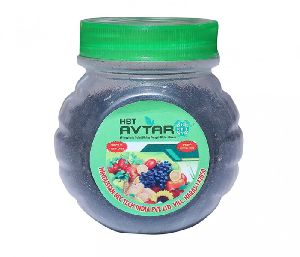
Phosphate Solublising Fungi
100 Box (MOQ)
A biofungicide is made up of beneficial fungi and bacteria that colonize and assail plant pathogens, thereby thwarting the diseases they cause. These microorganisms are commonly and naturally found in soil, making them an environmentally friendly alternative to chemical fungicides. Biofungicides attack and feed on the harmful pathogen. Biofungicide has to be in the rhizosphere either before or at the same time as the pathogen. Predation by the biofungicide will not affect the harmful pathogen if introduces after it has infected the roots. Recommended Crops-: Cereals, Pulses, Oil seeds, Cotton, Capsicum, Chilies, Cauliflower, Brinjal, Tomato, Potato, Onion, Peas, Beans, Ginger, Turmeric, Cardamom, Tea, Coffee and Fruits crop- Apple, Citrus, Grape , Pomegranate , Banana etc.
Country of Origin : India
Brand Name : HBT
Application : industrial
Purity : 100%
...more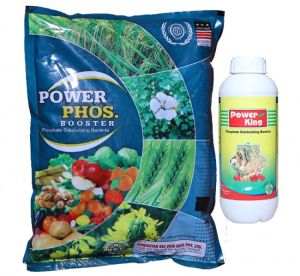
Phosphate Solubilizing Bacteria Bio Fertilizer
CFU: 5 x 107/ g Mode of Application Soil Treatment Mix 2 – 3 kgs / acre with 50 kgs of soil / FYM /vermicompost / acre and after 2 or 3 days maintaining adequate moisture and broadcast. Seed Treatment Mix 2 -2.5 g / kg of seeds in required volume of water and add a small lump of jaggery, mix well, shade dry (15- 20 mins) and ready for sowing. Treatment of the plant material (sett, seedling and rhizomes) Dissolve 1 kg in 20 -30 liters of water and dip the seedlings for 30 minutes before planting. Soil Drenching Mix 250 g / 200 liters of water and apply near the root zone per acre area of cropped area. Mode of Action Seputida Secrets Organic acids and some enzymes which converts the insoluble phosphate into soluble form which can be easily uptake by plants. Recommended Crops Cereals (Paddy, wheat, maize, barley), Pulses (Soybean, greengram, chickpea, bengalgram, redgram), Oilseeds (sunflower, groundnut, mustard, coconut, soybean), cotton, jute, vegetables, fruit and plantation. Key Aids Phosphorous solublization and mobilization, Stimulates plant growth, Rreduces the use of phosphatic based fertilizer upto 20-30 %, and Increases the tolerance against biotic and abiotic stresses, Results in higher yields.
...more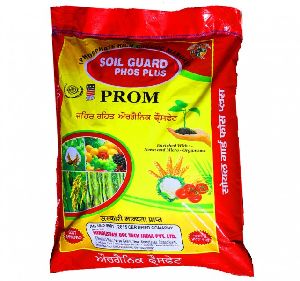
Phosphate Rich Organic Manure Organic Fertilizer
Phosphate rich organic manure is a type of fertilizer used as an alternative to diammonium phosphate and single super phosphate. Phosphorus is required by all plants but is limited in soil, creating a problem in agriculture In many areas phosphorus must be added to soil for the extensive plant growth that is desired for crop production. Phosphorus was first added as a fertilizer in the form of single super phosphate (SSP) in the mid-nineteenth century, following research at Rothamsted Experimental Station in England. SSP is non-nitrogen fertiliser containing Phosphate in the form of monocalcium phosphate and Gypsum which is best suited for Alkali soils to supplement Phosphate and reduce soil alkalinity. The world consumes around 140 million tons of high grade rock phosphate mineral today, 90% of which goes into the production of diammonium phosphate . Usage Gardening : Vegetable, Roof top, herbs, Flowering Plants (Floriculture), Natural Lawn and Garden care. Organic Landscaping and Agricultural Farms. Fruit trees (Horticulture). Tissue culture Plants. Sericulture All crops Benefits Enables efficient growth. Increases moisture retention. Promotes microbial activity. Controls pest & diseases. Dosage As per the requirement according to the crops
...more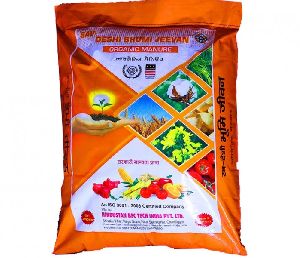
Organic Manure Organic Fertilizer
Organic manure is nutrient derived from organic sources like animal waste, vegetable compost, agricultural residues, human excreta, etc. Basically they are natural materials that decay and get mixed with the soil thereby increasing its fertility. The main idea behind providing organic manure is to break down the complex inorganic nutritional supplements into simpler organic ones that can be easily absorbed and assimilated by the plants. Manures having a low nutrient content have residual effect for a longer period of time. It also improves the quality of the soil. Some of the major manure sources are Human waste like urine, night soil, sludge, sewage, slurry and other organic town refuse. Cattle waste like urine, dung, slurry from biogas plants. Agricultural wastes like crop residue, trash, stubble, twigs, dry leaves, etc. Slaughterhouse wastes like blood meal, bone-meal, meat meal, fish waste, horn meal and hoof meal. Water tank wastes like silt, weeds, water hyacinths, etc. Agro-based industrial wastes like bagasse, oil cakes, corn cobs, press mud, wheat straw, fruit and vegetable processing wastes, wheat bran, mushroom compost, etc. Poultry wastes like droppings, extra feed, etc. Besides these kitchen waste can be used to make organic manure for gardening. Usage Gardening : Vegetable, Roof top, herbs, Flowering Plants (Floriculture), Natural Lawn and Garden care. Organic Landscaping and Agricultural Farms. Fruit trees (Horticulture). Tissue culture Plants. Sericulture. All crops Benefits Enables efficient growth. Increases moisture retention. Promotes microbial activity. Controls pest & diseases. Dosage As per the requirement according to the crops
...more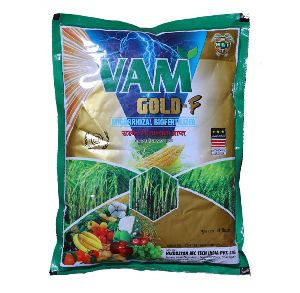
Mycorrhiza Bio Fertilizer
A symbiotic network of fungal fibers aids in the root elongation for better water and nutrient absorption for healthy growth of the plants. Dosage Granular formulation Broadcasting at 4 kgs / acre alone or mix with other organic or chemical fertilizers, irrigation should be provided within 24 hrs of application. Powder Formulation Apply powder @ 100-150 gm/acre through Fertigation, drenching, Or Seedling treatment @ 10 gms / lit of water. Mode of application Soil, seed treatment, seedling dip. Recommended Crops All crops except cruciferous plants (e.g. Cabbage, cauliflower, broccoli, Chinese cabbage, Brussels sprout, radish, turnips etc). Key Aids Balanced crop growth. Better nutrient mobilization. Healthier root system for better nutrient uptake. Significant Water and Fertilizer use efficiency. Drought and stress resistance. Improves the quality of the produce. Protects from soil pathogens and diseases. Compatible with other bio-fertilizers and organic fertilizers. Availability Granular, Powder, Tablet forms
...more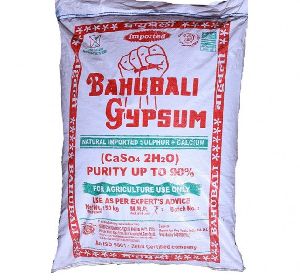
Gypsum Organic Fertilizer
Gypsum is a common mineral obtained from surface and underground deposits. It can be a valuable source of both calcium (Ca) and sulfur (S) for plants and can benefit certain soil properties under specific conditions. Agricultural gypsum generally consists of CaSO4·2H2O (dihydrate). Under geological conditions of high temperature and pressure, gypsum is converted to anhydrite (CaSO4with no water). Byproduct gypsum comes from fossil-fuel power stations where S is scrubbed from exhaust gas. Gypsum is also a byproduct from processing phosphate rock into phosphoric acid. Gypsum from recycled wallboard is finely ground and applied to soil as fertilizer. Agricultural use : Farmers typically add gypsum (sometimes called land plaster) to soils either to nourish plants or modify and improve soil properties. Gypsum is somewhat soluble in water, but more than 100 times more soluble than limestone in neutral pH soils. When applied to soil, its solubility depends on several factors, including particle size, soil moisture and soil properties. Gypsum dissolves in water to release Ca2+ and SO42 –, with no significant direct impact on soil pH. In contrast, limestone will neutralize acidity in low-pH soils.
...more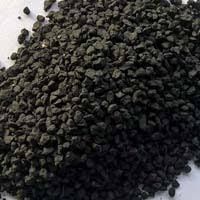
double roasted bentonite granules
4 Per Kilogram
we are engaged in processing and supplying roasted bentonite granules. our roasted bentonite granules are known for its granular fineness. we emphasize on timely delivery and stringently check on transition losses.additional information: minimum order quantity: 10 ton we are mainly focusing to deal with bulk quantity of orders.
Application : Organic Fertilizers, Bio-fertilizers, Zyme
Color : Black
Form : Granules
Packaging Type : Plastic Bags
Country of Origin : India
Packaging Size : 50kg
...more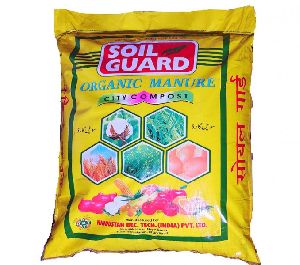
City Compost Organic Fertilizer
Compost is a unique product composed f organic manure which includes animal waste plant waste , vegetables and fruit waste that has been decomposed in a process called composting .it is a farm yard manure used for all crops. Our Product increase crop Production and yield, improves soil health, fertility, structure, creates favorable conditions for healthier plant growth & development and reduce the usage of chemical fertilizers and water. Our product is extremely useful for all types of crops, fruits and vegetables. It provides humus, organic matter, microorganisms, major nutrients like Nitrogen, Phosphorus , Potassium, Manganese, Calcium, Magnesium etc Usage Gardening : Vegetable, Roof top, herbs, Flowering Plants (Floriculture), Natural Lawn and Garden care. Organic Landscaping and Agricultural Farms Fruit trees (Horticulture) Tissue culture Plants Sericulture All crops Benefits Enables efficient growth. Increases moisture retention. Promotes microbial activity. Controls pest & diseases.
...more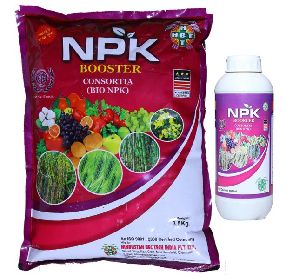
Carrier Based Consortia Bio Fertilizer
CARRIER BASED CONSORTIA NPK is a Powder/LIQUID/GRANULE microbial formulation containing free living nitrogen fixing phosphate solubilizing and potash mobilizing bacteria . It fixes free atmospheric nitrogen and solubilize phosphorus and mobilize potassium into available form for all crops. Bio NPK enhance percentage of seed germination and better seedling vigour. Recommended Crops All crops (Paddy, Wheat, Maize, Sugarcane, Grapes, Pomegranate, Apple, Citrus, Cotton, Ground nut, Banana, Tea, Coffee and Coconut etc.) Seed Treatment 250 ml content of the bottle is sufficient enough to treat the seeds required for one acre area. Mix the inoculate with seeds gently with the minimum amount of water taking care to avoid damage seed coat. Dry the inoculated seed under shade over clean surface gunny bag and sow them immediately. Root/Bulb/Seedling Treatment for one acre sowing make solution of 250- 500 ml inoculate in 25-30 Ltr portable (ordinary) water. Plant root/Seedlings/bulbs are dipped for 30 minutes in culture solution and immediately sow in cold weather time. Soil Treatment 1-2 ltr of Bio NPK inoculate/acre mix with 50 kg FYM/compost organic fertilizer or as per farmers practice and evenly broadcast at the time of last ploughing before first irrigation and irrigate the soil immediately. Drip Irrigation System 1-2 ltrs inoculate to be mixed with 200 ltrs of water and then injected into drip irrigation system and uniformly irrigate one acre area. Benefits Helps to uptake nutrients from the soil Ensures early seed-germination, improves crop-growth and vigor Reduces the use of inorganic fertilizer (N, P, K) requirement by 25% Enhances the yield by 10 to 20% for different types of crops Best suited for all economically important field crops Ubiquitous in nature and of great importance to humans Method of Application Mix 3ml/gm of Grow Consortia with 5ml jiggery solution to treat 1kg of seeds. Mix well to achieve a uniform coating. Dry under shade for 30 minutes. Sow within 24 hours.
...more
Bio Enriched Organic Manure Organic Fertilizer
It is a unique Bio Enriched Organic manure manufactured from biodegradable organic substances, mainly of plant origin, through controlled accelerated microbial composting process. It is free from unwanted bacteria / insect eggs, unwanted plant pathogens. City Compost is manufactured as per FCO 1985 STANDARDS and subsequent amendments thereof. Our Product increase crop Production and yield, improves soil health, fertility, structure, creates favorable conditions for healthier plant growth & development and reduce the usage of chemical fertilizers and water. It provides humus, organic matter, micro organisms, major nutrients like Nitrogen, Phosphorus, Potassium, Manganese, Calcium, Magnesium etc., is a nitrogen fixing obligate aerobe and that bacterium can fix N-up to 15kg/ha/year. plant growth promoting species are commonly used to improve crop yield, as plant secretes the growth promoting hormones Base- carrier based in form of moist/dry powder or granules or liquid based Viable cell count- CFU minimum 5x10' cells/g of powder/granules or carrier material or 1x10' cells/ml. of liquid. Use For Gardening : Vegetable, Roof top, herbal Flowering Plants (Floriculture) Natural Lawn and Garden care Organic Landscaping Agricultural Farms Fruit trees (Horticulture) Tissue culture Plants Sericulture Benefits Enables efficient growth. Increases moisture retention. Promotes microbial activity. Controls pest & diseases. Reduces unwanted bacteria etc.
...more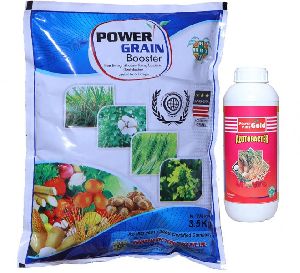
Azotobacter Bio Fertilizer
Nitrogen Fixing Bio-Fertilizer for Crops CFU: 5 x 107/ g Mode of Application Soil Treatment Mix 4 kgs / acre with the soil / Farm Yard Manure (FYM) / vermin-compost after 2 or 3 days Maintaining adequate moisture and broadcast. Seed Treatment Mix 6 – 10 g / kg of seeds in required volume of water and add a small lump of jaggery, mix well, shade dry (15- 20 mins) and ready for sowing. Treatment of the plant material (sett, seedling and rhizomes) : Dissolve 1 kg of Azotobacter in 20 -30 liters of water and dip the seedlings for 30 minutes before planting. Soil Drenching Mix 250 g / 200 liters of water and apply near the root zone. Mode of Action Azotobacter chrococcum produces enzymes like Nitrogenase, hydrogenase , these will help to convert the atmospheric nitrogen into ammonium/nitrates which can be uptake by plants,thus it fixes the nitrogen in the rhizospear. Azotobactor also synthesizes the some of the biologically active substances such as phytohormones there by stimulate the plant growth. Recommended Crops Cereal crops such as paddy, jowar, cotton, millets, oilseeds, plantation crops, vegetables, and all other non-leguminous crops. Key Aids Nitrogen fixation Anti-Fungal Properties: Acts upon the various plant pathogenic fungi Increases Crop Yields Availability In both Powder and Liquid, granule form
...more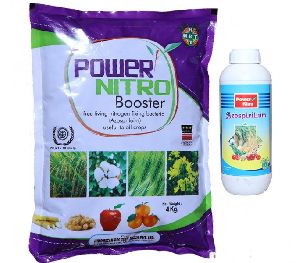
azospirillum bio fertilizer
Nitrogen Fixing Bio-Fertilizer for Crops CFU : 5 x 107/ g Mode of Application Soil Treatment Mix 2 – and broadcast 4 kgs / acre with the soil / FYM / vermi-compost after 2 or 3 days maintaining adequate moisture at the last ploughing. Seed Treatment Mix 6 – 10 g / kg of seeds in required volume of water and add a small lump of jaggery, mix well, shade dry (15- 20 mins) and ready for sowing. Treatment of the plant material (sett, seedling and rhizomes): Dissolve 1 kg in 20 -30 liters of water and dip the seedlings for 30 minutes before planting. Soil Drenching Mix 250 g / 200 liters of water and apply near the root zone per acre area of cropped area. Mode of Action Azospirullam brasilense produces growth promoting substances like auxins, gibberellins which promotes the root proliferation; root branching and rootlet density thus results in increased uptake of minerals and water from the soil. Recommended Crops Cereal crops like Paddy, millets, Sugarcane, oilseeds, fiber crops. Key Aids Azospirullam Increases the N-fixation and uptake of nutrients. It stimulates the plant growth and results in higher yields. Imparts resistance against drought. Availability Both Powder and Liquid form
...more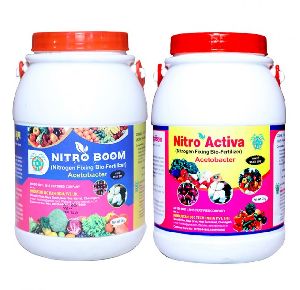
Acetobacter Bio Fertilizer
Nitrogen Fixing Bio-Fertilizer for Crops CFU : 5 x 107/ g Mode of Application Soil Treatment Mix 4 kgs / acre with the soil / Farm Yard Manure (FYM) / vermin-compost after 2 or 3 days Maintaining adequate moisture and broadcast. Seed Treatment Mix 6 – 10 g / kg of seeds in required volume of water and add a small lump of jaggery, mix well, shade dry (15- 20 mins) and ready for sowing. Treatment of the plant material (sett, seedling and rhizomes): Dissolve 1 kg of Azotobacter in 20 -30 liters of water and dip the seedlings for 30 minutes before planting. Soil Drenching Mix 250 g / 200 liters of water and apply near the root zone. Mode of Action ACETOBACTER ACETI produces enzymes like Nitrogenase, hydrogenase , these will help to convert the atmospheric nitrogen into ammonium/nitrates which can be uptake by plants, thus it fixes the nitrogen in the rhizospear. Azotobactor also synthesizes the some of the biologically active substances such as phytohormones there by stimulate the plant growth. Recommended Crops Cereal crops such as Sugarcane, pineapple, sweet potato, beetroot ,banana,coffee,tea,wheat,maize,vegetables, and all other leguminous crops. Key Aids Nitrogen fixation. Anti- fungal properties: acts upon the various plant pathogenic fungi. Increases crop yields. Availability In both Powder and Liquid , granule form
...moreOpening Hours